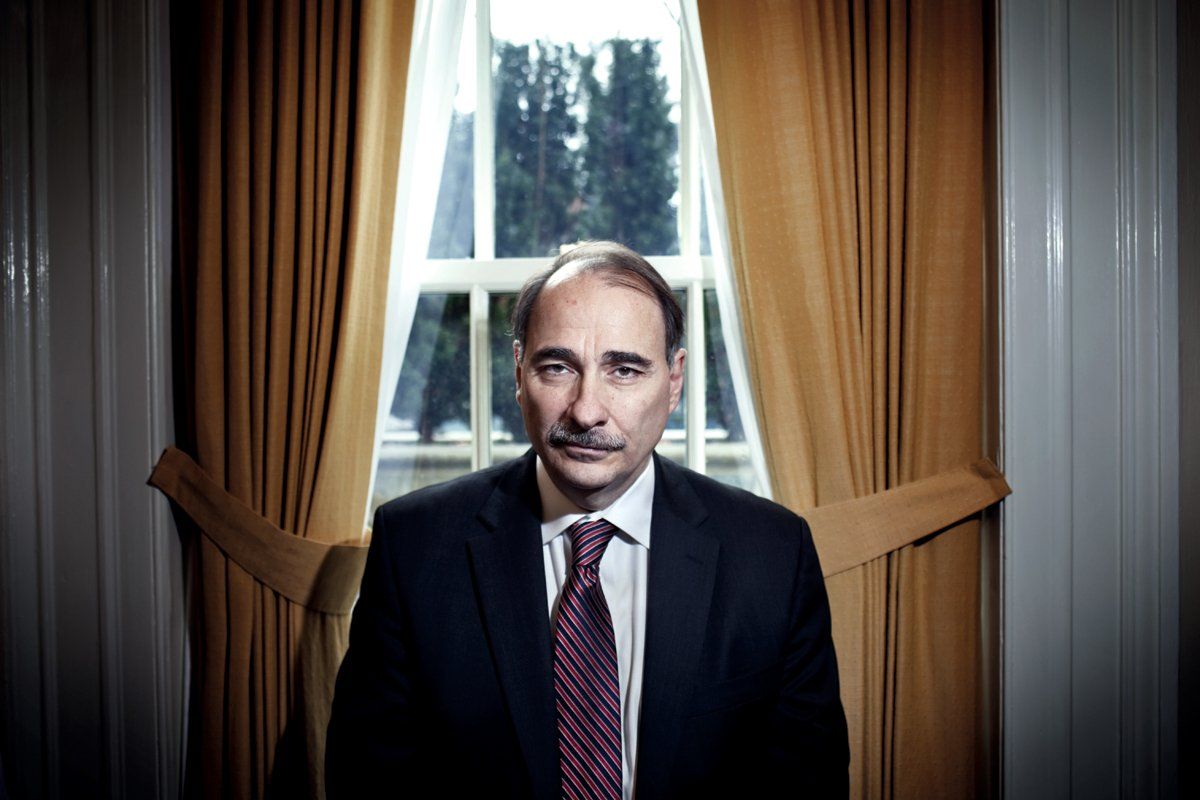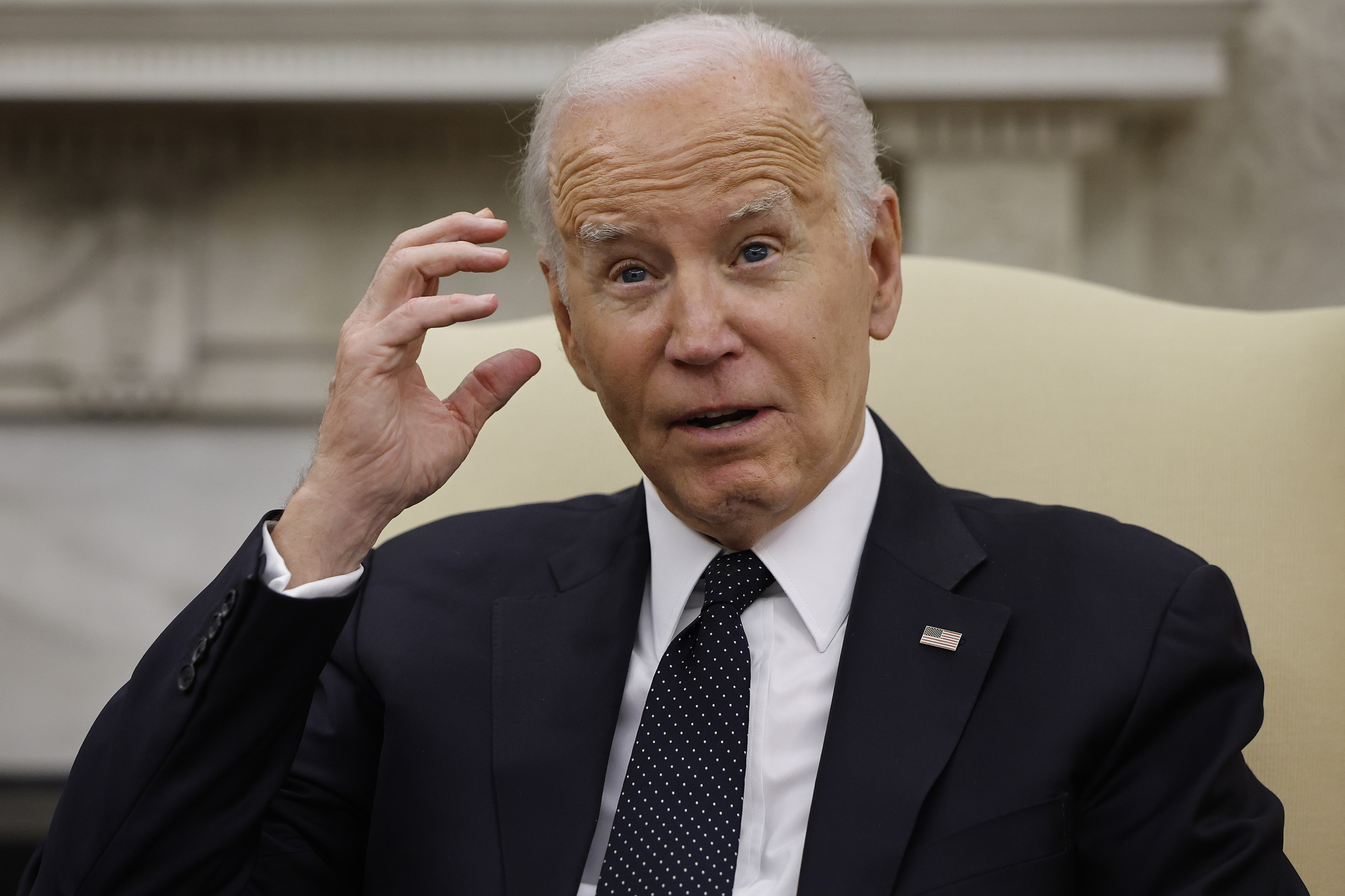
You're the message man. One of the criticisms of President Obama's first two years in office is that the message was weak. What do you say to that?
I say a couple of things. One is, we came to office in a time of national emergency and economic crisis and two wars, one of which had no strategy. We didn't have the luxury of orchestrating the messaging as we would under normal circumstances. We had to come here and, even before we arrived, do some very tough things—not very popular things—to arrest the free fall of the economy. But I also recognize the nature of the economy, the nature of Congress, and the nature of the midterm elections. We were going to have some level of dislocation come November. I'm gratified that the president's numbers have been as resilient as they've been. So from a political standpoint, he's emerged from a very difficult two years with a solid foundation on which to build.
What are your regrets on how you communicated his persona and accomplishments?
My regret is that we didn't have the time and space to roll things out the way we would under normal circumstances. The Recovery Act is the most misunderstood piece of public policy of recent times. Most people think it was about banks and auto companies, because we had to conflate a whole lot of things in a short period of time to get the economy moving. I regret that.
Can you identify any [other] mistakes over the past two years?
There are things I would have liked to have messaged differently. I would have liked to have taken the tax-cut portion of [the Recovery Act] and spent a long time talking about that. I would have liked to take the energy portion and talked a lot about that. I think we could have done more with the magnificent education reforms that Arne Duncan has championed, the Race to the Top, which has encouraged 34 states to raise their standards. I'm really, really proud of what this president has done during a very difficult time for this country. And he's made some very hard decisions. One of [the pivotal decisions] was on the auto industry. I said to the president, "Before you make a decision, you need to know this isn't going to be very popular." And like on so many things, he said to me, "Yeah, but on the other hand I'm not going to allow the American auto industry to disappear in the middle of the worst recession since the Great Depression."
You've recently seemed to be dealing with a Democratic insurrection. How will you deal with that break in the party?
I understand there's a lot of consternation about [the tax package] within the Democratic caucus. But at the end of the day, the president was faced with a choice. The choice was whether to let taxes go up by a significant amount on Jan. 1 and whether we let millions of people depending on unemployment insurance have their lifeline cut. Or do you try to work something out? We engaged in negotiations that would produce something far greater than anyone thought we would get. Compromise, however, means accepting things that we don't particularly like.
Part of it is tone. Lately he's seemed angrier at his friends than he is sometimes at the opposition.
This president has gotten a lot of things done that people in our party have tried to get done for decades—in the case of health care, for a century. Let me say something about this issue about anger. I honestly don't think the American people are interested in angry confrontation as a staple of Washington. They've seen plenty of that. What they want is progress. What they want is to move the ball forward. I have no illusions about the differences between our parties. And that we'll have a difficult election in 2012—difficult in the sense that it'll be competitive. But at some point there has to be a season for getting things done.
Maybe you need more theatrics to make the point [that Obama is fighting to make things better]?
Theatrics won't put food on the table. Theatrics won't put your kid through college. Can we do more to promote the things we've done to help? I think that's fair criticism. Admittedly, [political theatrics] is not his nature, but we could have done a better job on that. A lot of it was the frenetic kind of pace at which we had to operate. I think we have a better opportunity in the next two years to communicate in a pace and in a fashion that will help us get our accomplishments across.
How will the next campaign message differ from the first one?
I know "hope" and "change" have taken a little beating in this political environment. But hope and change are still at the core. They have to be reflected by the things we do. We're going to have a record to run on and a vision of the future that's distinct from the vision that's offered by the other side. We all know we have fiscal challenges. Those fiscal challenges have been mounting for years. Now we have to confront those in the mid- and long term. But that alone is not going to guarantee America's success; that's not going to guarantee the success of families. In 2012, you'll see competing visions of how we compete in the world today in such a way that we give the best chance to families and businesses across this country to succeed.
Folks around the West Wing are talking about Huckabee. Everyone's curious about Palin. Can you handicap the Republican field?
No, and to be honest, I don't think any Republican could. I think this is the most unsettled Republican field that I've seen, maybe ever. The Republican Party has always been a hierarchical party. The leaders of the party have always decided who the nominee is going to be, and that person becomes the candidate. That was true with George W. Bush; it was true with McCain. I think they have a much different situation now. There's a right-wing populist movement within their party, and a kind of battle between factions. It's not clear to me who's going to prevail.
Can the president find common ground with the Tea Party over deficit reduction and tax reform?
I think we can find some common ground on fiscal reform, on political reform, and on tax simplification. There are places where we ought to be able to work together and get things done. I think the public expects or at least hopes for that. They're demanding that. [However,] there are going to be places where we simply can't go. All cuts are not equal. Education would be a good example. The president believes strongly that education is the economic defense budget of the 21st century. If we don't have an educated workforce, we're depriving our country of an opportunity. If that becomes an issue and people want to cut the heart of our ability to reform our schools and deliver the kind of quality education that young people need, that's going to be a place where we will probably part ways. And there are others.
You're going to leave the White House. What does that mean for the inner circle here, and for the campaign?
I think renewal is important for the White House, and it's important for the people who work here. It's going to be helpful for me to get back to the Midwest, to get back to what I call the real America outside this town. I'll be more helpful to the president in the advice I can give him from afar. By the same token, he'll benefit from having people who have been out there and are now coming in, and bringing new energy and new ideas. David Plouffe will be one of the people coming in who I think is going to bring a great deal of leadership and direction to the communications operation and the political operation.
Are you concerned about the possibility of a primary challenge?
We'll see what happens as time rolls on. There was a public poll out recently that said the president had an 80 percent approval rating among Democrats and virtually no negatives. That's a pretty good place to start your reelection campaign. There may be segments of our party that are unhappy about various things, but rank-and-file Democrats support this president. And rank-and-file Democrats are going to make the decision in 2012.
What about the speculation—based on his own statements that he'd rather be an effective one-term president—that he might not run again?
None of my personal planning is predicated on the notion that he's not going to run again. He obviously hasn't formally made that announcement or decision, but look, this is a man who is deeply committed to this country and believes that the future is going to be better, and wants to fight for that and work for that and motivate people on both sides to pursue the things that will make that happen. And I'm sure he feels that he can do that more readily than anyone else who is available. And he'll make his case at that time, but I'm pretty confident that I won't have a lot of idle time in 2012.
Do you have a campaign slogan or theme in mind for 2012?
Having just said he hasn't formally decided to run, that really would be news. So for now I would just offer you "Stay tuned."
Uncommon Knowledge
Newsweek is committed to challenging conventional wisdom and finding connections in the search for common ground.
Newsweek is committed to challenging conventional wisdom and finding connections in the search for common ground.
About the writer
To read how Newsweek uses AI as a newsroom tool, Click here.






